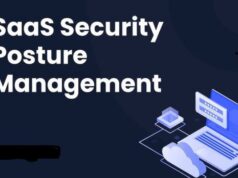
Selecting the right hardware for your new business is a pivotal decision that can impact both your daily operations and long-term productivity.
With the vast array of options available, it’s crucial to choose solutions that not only meet your current needs but also scale with your growth.
Before beginning your hardware search, create a list of “required” features that are critical to the operation of your business. Then make another list of “preferred” features that are not essential but would be useful and make life easier.
By doing this you can eliminate many products from the search that don’t come with the “required” features or are too expensive.
From there, you can make a final selection based on the number of additional, “preferred” features that the product has.
Understanding the balance between cost, performance, and future-proofing your hardware investments is key for sure.
Additionally, the right hardware selections can streamline your processes, enhance your team’s productivity, and ensure data security. To get started on choosing the right hardware for your business, visit Piggy Bank Processing for further insights.
Understanding Your Business Needs

Before starting a purchase, it’s critical to assess what your business needs. Consider the tasks that the hardware will need to perform, whether you need mobility, or if the work will primarily be done from a fixed location.
This includes thinking about the software that your business will run and the hardware compatibility required.
For example, graphic design companies will need high-resolution monitors and powerful graphics cards, while data analysis firms might prioritize fast processors and substantial RAM.
Budget Considerations
Your budget will significantly influence the hardware you choose. It’s important to allocate your funds wisely, balancing between investing in high-quality, durable items and not overspending on unnecessary features.
Consider not only the upfront cost but also the long-term operational costs such as energy consumption, maintenance, and potential upgrades.
It’s wise to invest a little more upfront for more reliable, energy-efficient equipment that will save money and prevent headaches down the road.
What Are Your Speed and Performance Requirements?
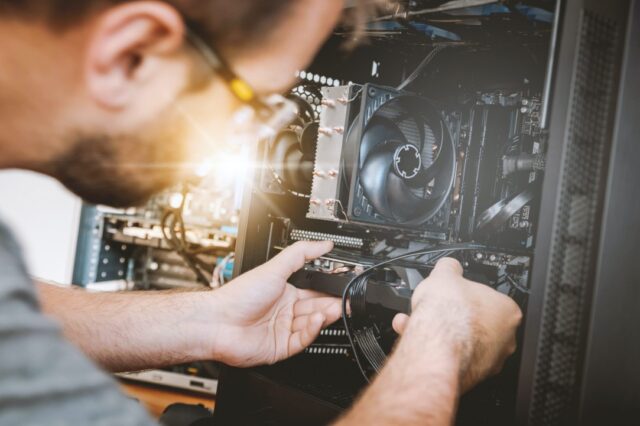
Hardware devices typically have a processor or CPU that determines its speed and performance. The higher the processing power, the better your device is at handling complex tasks and larger workloads.
In general, the latest generation processors will be more than capable of performing basic business tasks. There are also certain types of processors designed for specific, high-performance functions such as video editing or 3D modeling.
Deciding how much processing power you need mainly depends on the type of tasks your device will be performing.
Essential Hardware for Your Business
Regardless of the industry you operate in, high-quality hardware is crucial for boosting productivity and potentially increasing revenue and profits.
At the heart of most business operations is the computer, whether it’s a multi-user workstation, a laptop, or a desktop.
Investing in a reliable computer can save considerable stress and enhance performance. Choose systems that are known for low maintenance and longevity, such as Macs or PCs with Windows, and ensure they are compatible with your existing software to avoid additional expenses.
Mobile Devices

For those always on the move, mobile devices act like personal assistants. This category includes tablets, e-readers, and smartphones, all of which can perform many of the tasks traditionally handled by a computer.
They are particularly useful due to their portability and the wide range of applications they support, making them worth the investment for dynamic business environments.
The Desktop or Laptop Computer
Selecting between a desktop or a laptop comes down to your business’s operational style. Desktops generally provide more power at a lower cost and are easier to upgrade.
Laptops offer the advantage of mobility and are suitable for businesses with remote or flexible work arrangements. Consider what will be most effective based on your team’s needs and the nature of your work.
Laserjet Printers
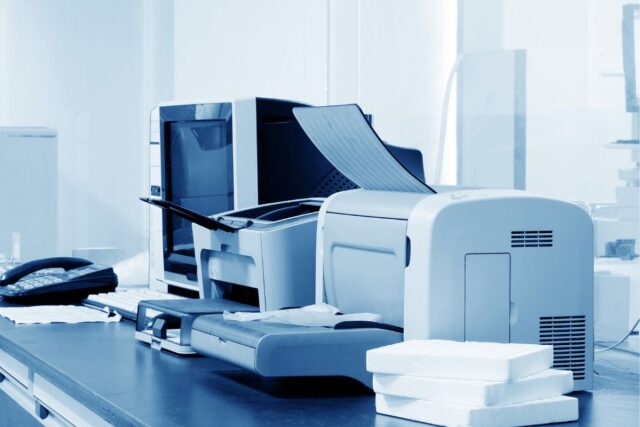
Even in increasingly paperless offices, the need for printing persists. A robust laserjet printer that also scans, copies, and faxes can be indispensable during those times when physical documents are necessary.
These multifunction printers are cost-effective solutions that fulfill multiple office needs, ensuring that even minimal printing demands are efficiently handled.
Wireless Routers
In an age where internet connectivity is critical, wireless routers are essential. They eliminate the need for cumbersome wiring and provide enhanced security features, such as built-in firewalls and network restrictions to trusted devices only.
This setup not only simplifies connectivity but also secures it, an important consideration for any business.
Network Servers
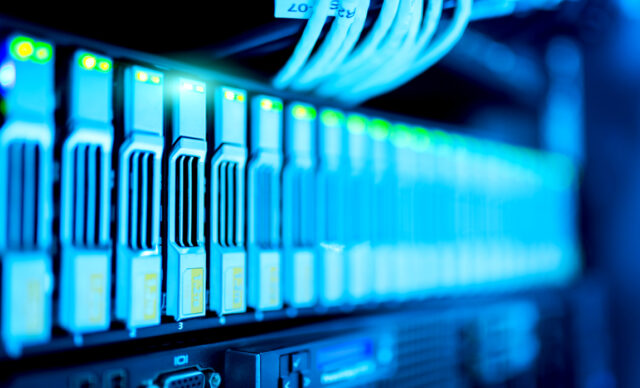
A dedicated server can significantly enhance your network’s capabilities, providing faster processing, better memory performance, and greater storage capacity.
These are essential for managing large data sets, supporting extensive email applications, and maintaining robust file systems.
Servers also play a crucial role in network security and data backup, ensuring that business operations run smoothly and securely.
What Storage Capacity Do You Need?
Storage or memory refers to the amount of information that can be stored on a device to be accessed and used later. Almost everything on your computer requires storage, from basic documents and photos to complex programs and applications.
When determining how much storage space you need, it is helpful to check how much you are currently using on your existing hardware. The storage capacity of your new hardware device should be well beyond what you need to keep stored.
This is because of the amount of storage you have available directly impacts performance. The closer you are to the storage limit, the slower your device will be.
Maintenance and Support
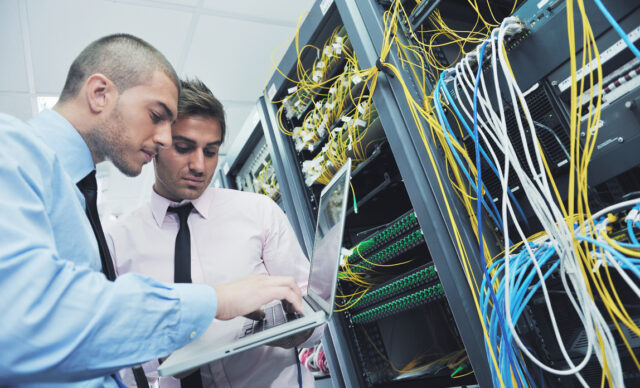
Lastly, consider the warranty and support options for your hardware. Reliable customer support can significantly reduce downtime and maintenance hassles. Opt for vendors who offer comprehensive support and service agreements. Regular maintenance can prolong the life of your hardware, ensuring that your investment continues to benefit your business for years to come.
Hardware choices play a critical role in the setup of any business. By making informed decisions about the essential hardware based on your specific operational needs, budget, and future growth projections, you can ensure that your business has the technological foundation to succeed and adapt to the ever-evolving market landscape.


